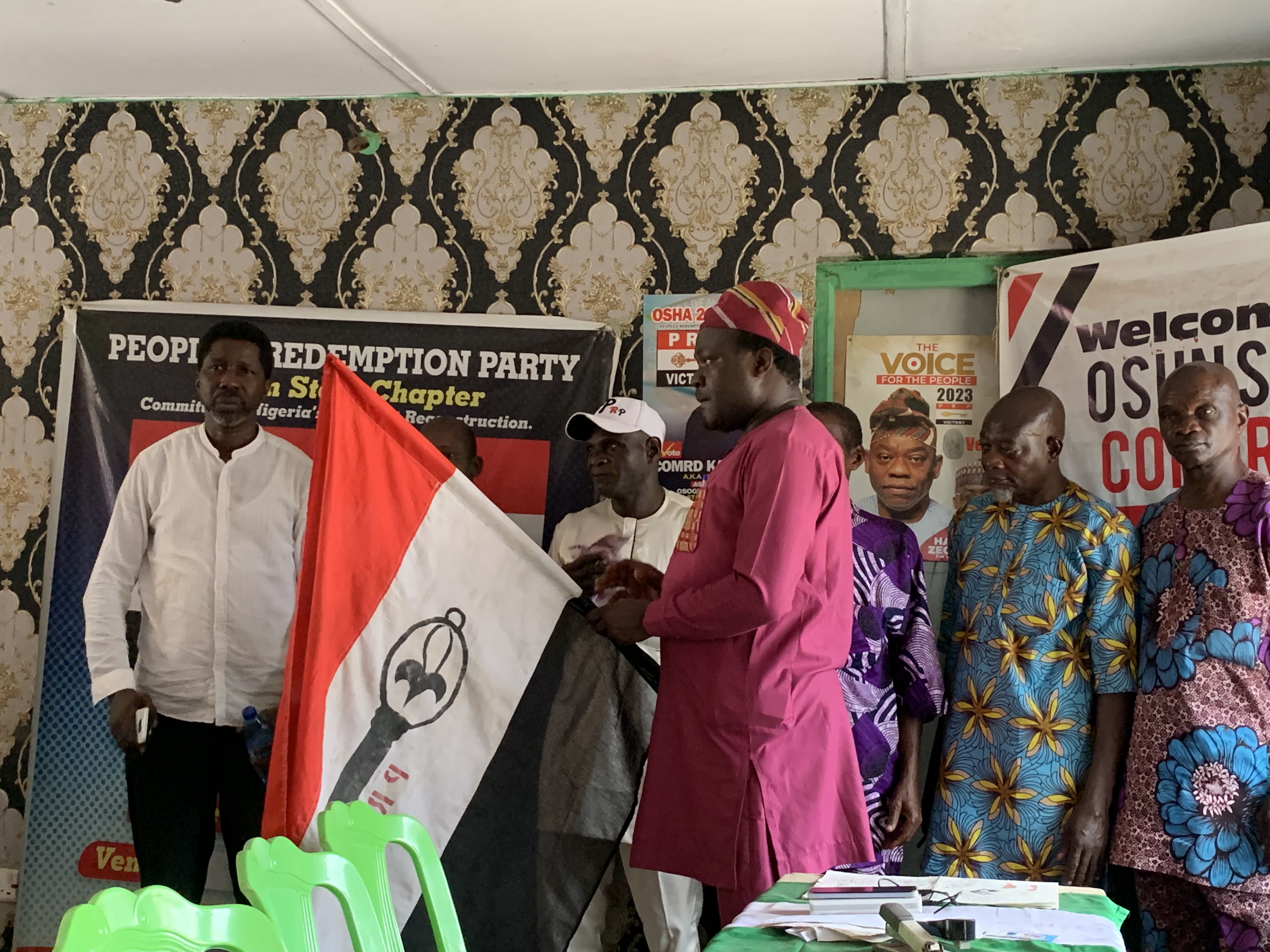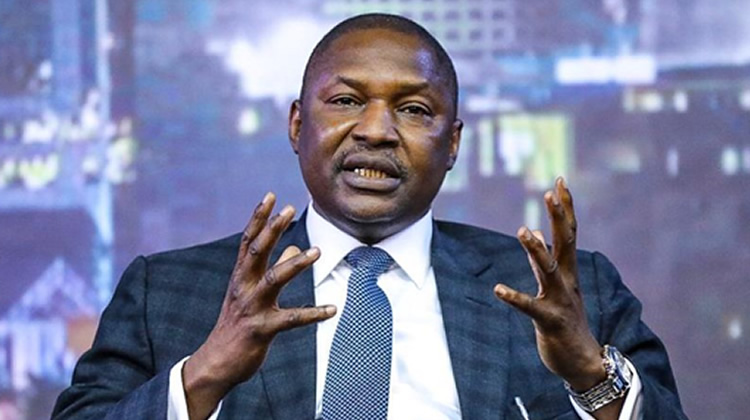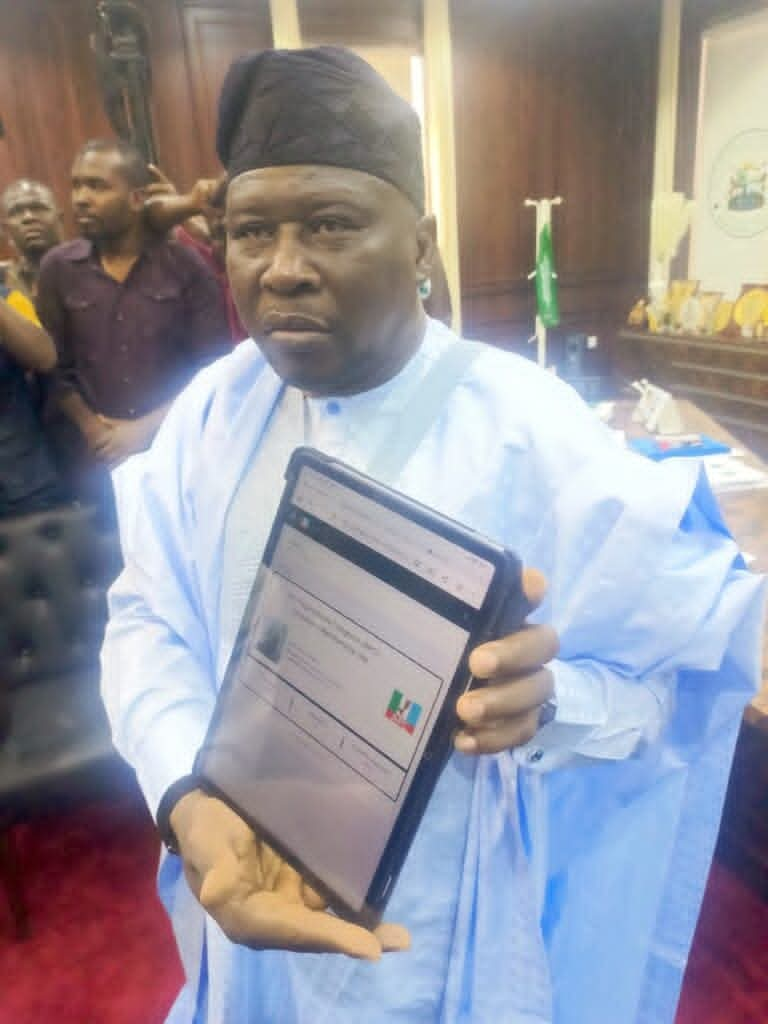The public sector in Nigeria is not a hopeless case, as we are sometimes all made to believe. It may not be effective and efficient. And this reflects on the quality of services – whether you need a permit to operate your business, taking a jab for Covid 19, going for a new e- Passport, processing a driver’s license, or even paying your tax, you are likely to encounter unfriendly, insouciant, and inept public servants operating in an uninspiring and disorderly manner. However, amid these, there has been a gradual emergence of a new generation of forward-looking, reform-minded public servants that raise the bar of optimism that Africa and especially Nigeria, can be an effective and efficient institution model. The Dora Akinyulis, Ngozi Okonjo- Iwealas, Ifueko Omogui- Okaraus, Oby Ezekwesilis, are shining examples of leaders who proved that reforming public institutions to deliver services effectively and efficiently is possible.
The cacophony of noise emanating from discordant shouts of insecurity, poverty and unemployment has overshadowed some of the brilliant examples of nascent visionary leaders making great waves in public sector transformation or reforms now. We have not done very well to celebrate these shining examples of leadership to encourage new leaders to toe the line of public sector reforms. I will plead that we change this paradigm immediately and give attention to these ebullient and exemplary leaders making a significant difference in their mandate areas. We need to replicate these models and raise a critical mass of reform-minded public sector leaders for our country to achieve its full development aspirations.
Among the many reasons to do this are the truisms in the ancient Igbo or Ijaw wisdom translated “If you thank a woman that cooked good beans, she will cook even more” and “a kid watches the Ewe as she chews the grass to learn how to chew grass”. Simply put, the more we spotlight and encourage these great leaders publicly, the more they do more incredible innovative things for the country. And the possibility of young leaders learning from and emulating them is high with a net positive effect on efficiency and productivity, especially in the public sector.
After careful investigation and careful analysis of some of the leaders in this category, I singled out the immediate past Czar of Nigeria Immigration Service (NIS), Mr.Muhammad Babandede. A quintessential reformer, a cerebral administrator, and an innovative, visionary leader who led the reform efforts of NIS in the six years he held sway as Comptroller General. I can boldly state, with no equivocation, that he led an impactful transformation. This piece is certainly not to shower praises on this humble but astute administrator. Instead, I will allow facts to speak for themselves as the cliché goes. I must also confess that although this my brother and friend commands my utmost respect, my judgements are objective and came because of my conviction of the impact of his contributions in reforming Nigeria Immigration Service. And especially my having had first-hand experience of the difficulties and challenges of effecting positive reforms in a public sector, in my case NIMASA.
Mr. Babandede, popularly called by Immigration Officers “the Digital CGI”, led massive transformation of Nigeria immigration as an institution and its services . He used innovative strategies, partnering with local and international experts to effect a-360-degree turnaround of the organization in all aspects; operational, procedural, structural, cultural, performance and human capital management. Even his critics cannot but notice his building of the Technology Building – a physical statement to his belief in using technology to improve service delivery and the various Forward Operating Bases (FOBs) he strategically located at border formations. He also created the Migrant e- Registration centres, the model Passport Application Processing Centre (PAPC), the new Conference Centre at Service Headquarters, and beautified the Service Headquarters and its environs. Aside from cultural and human capital reforms which are his flagship projects, he led the creation of numerous infrastructural projects dotting the Nigeria Immigration space. He was able to initiate the construction of Twenty (20) brand new Command Complex Offices, commissioned twelve (12) while eight (8) were at various stages of completion within the six years he held sway. This feat is not only impressive but uncommon with any government establishment in Nigeria. No doubt, every Immigration Personnel, active or retired, will relish this experience with pride.
CGI Babandede (rtd) had a unique management style that is inclusive and modern. Always interested in evidence-based consideration of proposed policy reforms, he would constitute committees, hold Workshops and Management Retreats to make sure his management team contributed to the process, and get all stakeholders’ buy-in. At the annual conferences which were regular, he would invite past
CGIs to share experiences and contribute to the process; this is a testimony to his team approach to management with an eye for wide- ranging consultations and thorough processing of ideas and evidence. Whilst leading the implementation of the Presidential Executive Order 1 on the Ease of Doing Business, he engaged MDAs and stakeholders at various levels and other international partners. He was outstanding in his engagement and the output of his work, which endeared him to the appointing authority.
Babandede turned NIS into a modern organization with an excellent customer interface and public presence. Not only has the organization been more visible in the media, but records show that the media attention to NIS comes because of the impact the services the organization is making. NIS online presence is one of the most professional and well-functioning among MDAs, with great information for all stakeholders. This use of ICT has given stakeholders who use immigration services a different and positive experience. Deployment of ICT had radical net positive effect on waiting days for service delivery such as issuance or renewal of passports, visas and resident permits.
Customers are engaged and provided with all the information they need to make informed decisions based on current realities. This is rare in Nigerian public service culture.
Acknowledged that immigration reforms is always a complex issue and quite often political, economic and security issues stand in the way of reforms ,It is pertinent to question at this point: what specific impact his leadership has had on the core areas of service delivery of NIS? I will focus on four key areas: First, Babandede’s efforts in Border Management Reforms are noteworthy. His establishment of a Forward Operations Bases for enhanced border security across various regions has significantly contributed to much-needed control of movement in and out of Nigerian Boarders.
For international air border control, Babandede and his team established e-gates linked with MIDAS facilities at the international airports in Kano, Lagos and Abuja respectively . MIDAS facilities were also installed at 22 Land Borders across the country for effective and efficient passenger facilitation and enhanced migration management. Under his leadership, the Chief of Mission of the UN Migration agency, IOM said ‘Nigeria has the largest, robust and most complicated IBM MIDAS in the world” . These accomplishments align with the overarching NIS Border Management Strategy he designed to guide his reform of the Border management systems and operations in Nigeria.
The second is the Visa Reforms. In 2020 Babandede developed and unveiled the Nigeria Visa Policy( NPV2020) launched by Mr President, which aims to radically improve the visa issuing experience and services within the NIS. This policy created an innovative visa regime in line with international standards and can compete with visa regimes in developed countries of the world. He put in place a robust Visa-on- Arrival platform with the migration from manual processing to email- based and currently web-based processes. Furthermore, he unveiled the Biometric Visa Administration. This new visa regime has enhanced the aesthetics of our Visa and improved its security features. Nigeria Visa application and issuing process, timing and efficiency of delivery are at par with most developed countries in the world. The impact of this is that it has made entry into the country
seamless and international travellers who hitherto struggled with visas are now able to come to Nigeria to do business or invest. Nigeria doors are open to all foreigners who have a positive contribution to make to our economy.
The third is the Passport Administration Reform. Following the process and document review in the year 2017, the Babandede-led team brought out the enhanced e-Passport starting with Abuja and Ikoyi Centres. The enhanced e-passport is polycarbonate and has additional security features and comes in Five-and Ten-years validity. Babandede also created a one-stop-shop Passport Application Centre at Abuja for improved Passport service delivery. This reform enabled a self- processing environment for passport applicants. The impact of this is that you can start and finish your passport application these days within 24 hours. Even when it is not possible to collect your e- Passport on the same day, NIS staff will contact you to pick your passport when it is ready. This is a remarkable shift from the past when it took months to get a new Passport. Lately, there was a backlog due to COVID 19. NIS quickly cleared a backlog of over 230,500 applications and engaged with over 43,350 applicants who had not collected their passports to do so. There is an integration of NIN with the ePassport so that it serves as a complete identification document.
The fourth is Migration management reform. This great reformer set out to put in place a veritable system and infrastructure to manage migration. Babandede and his team established MIDAS facility for reliable migrants’ information management system and enhanced security data. He unveiled Migration Training Centres at Abuja and Akwa Ibom, and established Migration Training Academy in Tuga. He built electronic migrants’ registration of projects, deployed the I/24-7 technology for Border Control, and created an INTERPOL platform integration. These innovative provisions have made it possible for Nigeria to control its migration, at least having accurate records of those who passed through its international gateways. As a country, we can efficiently and effectively collaborate with international partners in monitoring the global movement of people across borders.
The last is the public engagement reform. Babandede ensured that in line with FG’s emphasis on transparency in government activities, the NIS website and social media platforms were modernized . All services and facilities on offer are on the website, and various fees, processes, and procedures for procuring facilities are also clearly stated. All NIS social media handles are active and robust. Today, NIS maintains one of the most potent social media handles among MDAs. This is part of the overall digital strategy reforms he championed.
The official quarterly magazine for public information has remained steady, and annual report of activities and audited accounts were produced yearly under Babandede . These actions have created a degree of transparency that is uniquely NIS.
After considering the actions and impact of the Babandede administration on NIS, I am sure every patriotic Nigerian knows he deserves all the encomiums and praises heaped on him daily by those who marvel at his leadership prowess and transformational organizational skills. Perhaps the takeaway from the Babandede years in NIS is that reforms of public sector institutions are possible with determined, innovative, and visionary leadership. The journey from an immigration service driven by manual methods, demotivated staff, mediocrity to one guided by innovation, the spirit of excellence, technology, highly motivated personnel and satisfied citizenry should serve as a vital lessonto be replicated elsewhere in our national life.
Advertisement






